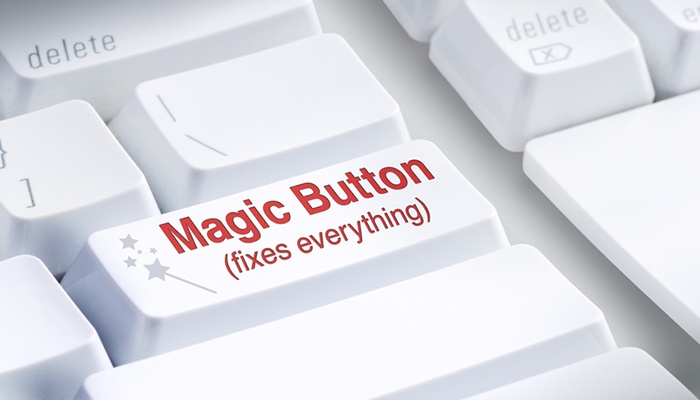Who hasn’t made a wish while blowing out a candle or breaking a wishbone? Mythical thinking, loosely defined as a story or a tale, can’t be proven. Lacking any facts, this type of future thinking explains the world around us. Fundamental to all human beings, the notion of mythical thinking never really leaves us.
What does this mean for the small businesses owner who needs to master strategic thinking?

Don’t Feed The Unicorn
Small business entrepreneurs are an optimistic bunch. Most have never met an opportunity they couldn’t leverage or a problem that can’t be solved immediately.
On the other end of the spectrum, some business owners are more cautious and risk-averse with their unique mythical thinking brand.
Mythical thinking also exists in the minds of our clients, as in the case of expectations of your services. It’s a potential source of conflict, controversy, and churn when it goes unrecognized.
Sadly, mythical thinking gets us in trouble. Void any facts, it’s subjective, less direct, and based on personal feelings. Plus, mythical thinking creates a gap between expectations and reality that is a natural stress antagonizer.
Hit a dead end and watch the uprising of mythical thinking. It’s the fertilizer of bad ideas. It propagates when we believe that everything will be different, even though we perform the same actions.
Did you get “lucky?” When a breakthrough that “seems” to come out of nowhere is attributed to “luck” outside of oneself, mythical thinking flourishes.
Ah, yes, but what does mythical thinking look like in real life? Some of the more common phrases lurking in the minds of an entrepreneur include the following:
- If I build it, they will come. Most entrepreneurs aren’t going to blurt this out – at least not in public. However, actions – or lack thereof – indicate an expectation that a yellow brick road will rain forth crowds to their storefront (or website).
- I’m supposed to know all there is to build a business successfully. Egad! No one wants to look like a fool, especially in front of a potential client, and certainly not in front of another entrepreneur. Most entrepreneurs are masters of their craft, not entrepreneurs.
- I’ve got to do it all – myself. Well, this sounds plumb crazy as you read it. Yet, most entrepreneurs fear others cannot, or will not, do the job as well as they can/will.
- I need to work 24/7 for my business to succeed. “Yes, and” as we say in comedy improv. Hard work is an essential piece of the success equation – as is working smart. Working more than 60 hours a week is not a badge of honor or anything deserving of applause. That brand of mythical thinking played well during the post-World War II Industrial Age. Today, it is a significant cause of burnout and contributes to a health crisis.
- I “have to” follow established business practices. You would be surprised how many entrepreneurs feel the need to follow in step with what the so-called experts say. Those who have walked before you can be a source of wisdom; however, you bring a distinctive trademark of creativity to your business that you should not dismiss.
- This is the way we’ve always done it. Wow! As fast as the marketplace is changing, we can hardly afford to do things the same way two days in a row without the risk of losing relevance.
Sadly, this kind of mythical thinking prevents entrepreneurs from reaching out for the support they need to succeed.
Keep Calm & Analyze
Entrepreneurship, and its accompanying success, are anything but mythical. Entrepreneurship is a learned skill. It requires logical thinking based on scientific and empirical data. Facts, controlled experiments, and rational evidence (like key performance metrics) contribute to the objectivity needed to succeed in the world of entrepreneurship.
Each day in the life of an entrepreneur is a clean slate, allowing a fresh, new start.
So, arm yourself with your magic sword, and let’s slay some dragons!

